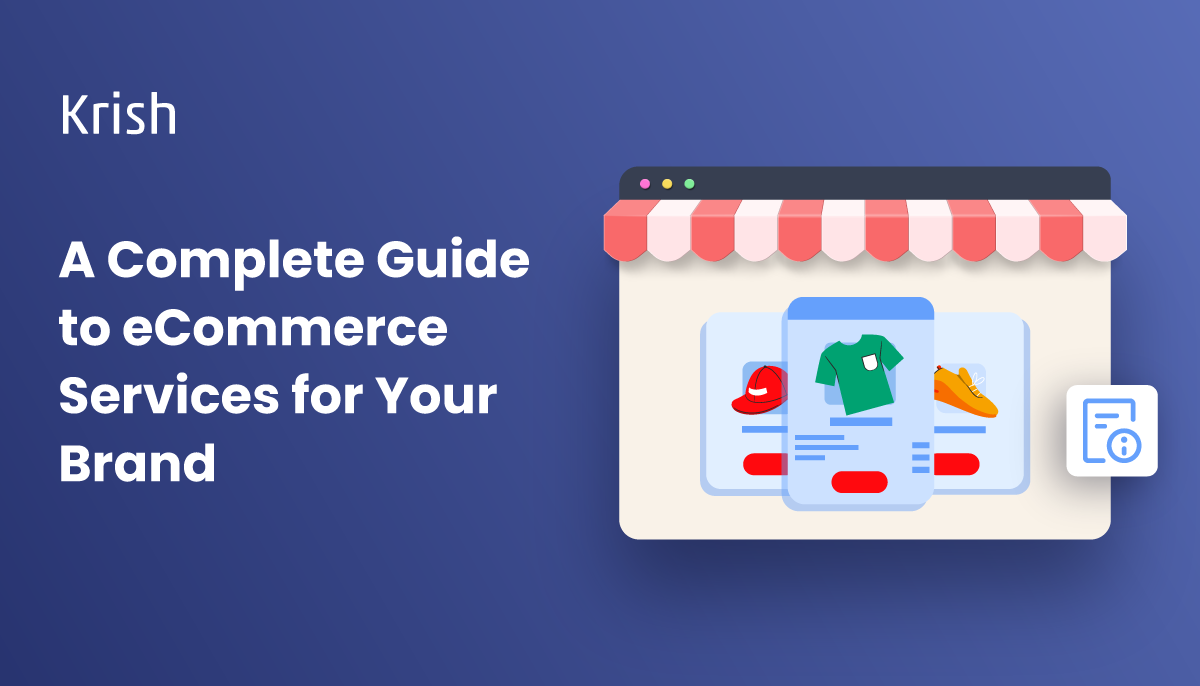
Overview
In today’s digital age, eCommerce has become an essential part of any brand’s marketing strategy. With the rise of online shopping, eCommerce services have become more advanced, allowing businesses to offer seamless and user-friendly shopping experiences to their customers. In this blog, we’ll provide a complete guide to eCommerce services or your brand, covering everything from online store setup to payment processing and shipping.
Let’s Explore eCommerce Services For Your Brand
1. Online Store Setup
The first step in creating an eCommerce website is to set up an online store with the help of eCommerce website development. There are several platforms available for building an online store, including Adobe Magento, Shopify, WooCommerce, BigCommerce, and more. These platforms offer various templates and customization options to help you create a unique and professional-looking website. You can also hire an eCommerce Store Development services to develop a custom eCommerce website from scratch
2. Product Management
Once you have set up your online store, the next step is to add your products. Your eCommerce platform should allow you to manage your product inventory easily. You can add the product names, descriptions, images, prices, and inventory levels. You can also categorize your products to make it easier for customers to find what they’re looking for.
3. Shopping Cart
A shopping cart is an essential part of any eCommerce Store Development. It allows customers to add products to their cart and proceed to checkout. Your eCommerce platform should provide a built-in shopping cart that integrates with your payment processing and shipping services.
4. Payment Processing
Payment processing is a crucial aspect of eCommerce website development. Your eCommerce platform should offer various payment options, including credit cards, PayPal, and other payment gateways. You’ll also need to ensure that your payment processing is secure and complies with industry standards.
5. Shipping Methods
Shipping is another critical aspect of ecommerce services. Your eCommerce platform should allow you to set up shipping rates based on the weight, size, and destination of your products. You can also offer free shipping for certain products or order totals. You’ll need to work with a shipping carrier to ensure that your products are delivered on time and in good condition.
6. Customer Management
Customer management is crucial for building customer relationships and ensuring repeat business. Your eCommerce platform should allow you to manage customer accounts, track order history, and offer customer support.
7. Marketing and Promotion
Finally, you’ll need to promote your eCommerce website to attract customers. Your eCommerce platform should offer built-in marketing features, such as email marketing, social media integration, and SEO optimization. You can also use paid advertising, such as Google Ads and Facebook Ads, to drive traffic to your website.
In conclusion, eCommerce services are essential for any brand looking to sell products online. By following these seven steps, you can set up a professional and user-friendly eCommerce website that offers a seamless shopping experience to your customers.

As Director - Marketing, Zenul leads the marketing and branding at Krish. He brings with him an in-depth understanding of the evolving digital ecosystem and has a proven expertise and experience in strategic planning, market and competition analysis, creating and implementing client-centered, lead-gen and brand marketing campaigns. He has a heart for technology innovation and has been a keynote speaker on various platforms.
Recommended Reading:
Managed Services and Dedicated Managed Services in eCommerce
28 April, 2015 For many an eCommerce store, support services is an extremely vital issue for the smooth operational running of the store. What is often required is an exceptional level of support and maintenance from the very moment the site goes live. Hence, support for a store is require to ensure that site runs smoothly in spite of the several complicated issues that the website might face.
Subscribe with Us!
Never miss any post, stay tuned!
Trusted by leading brands




